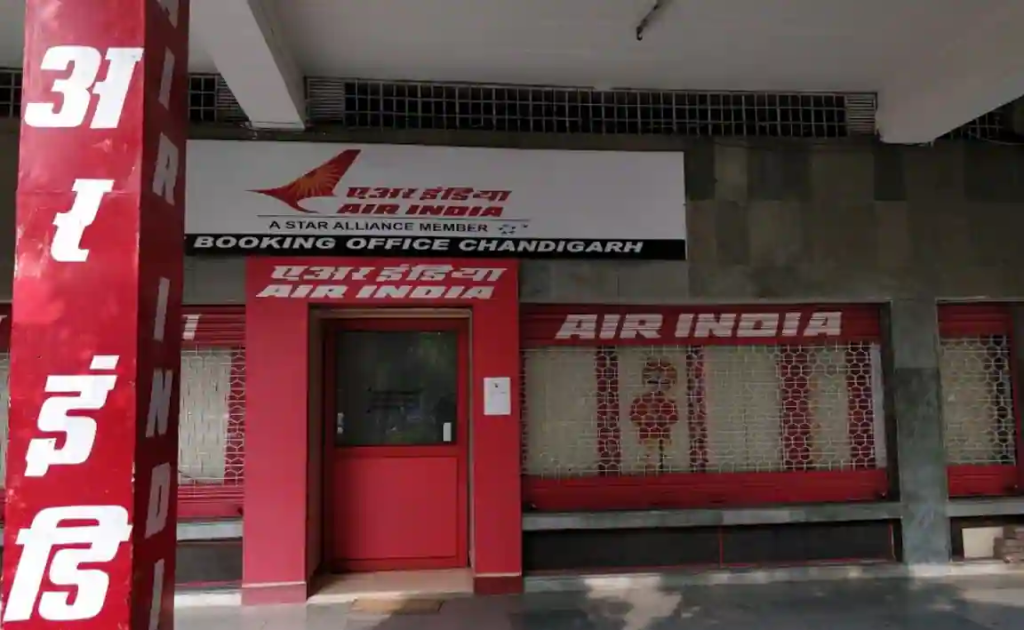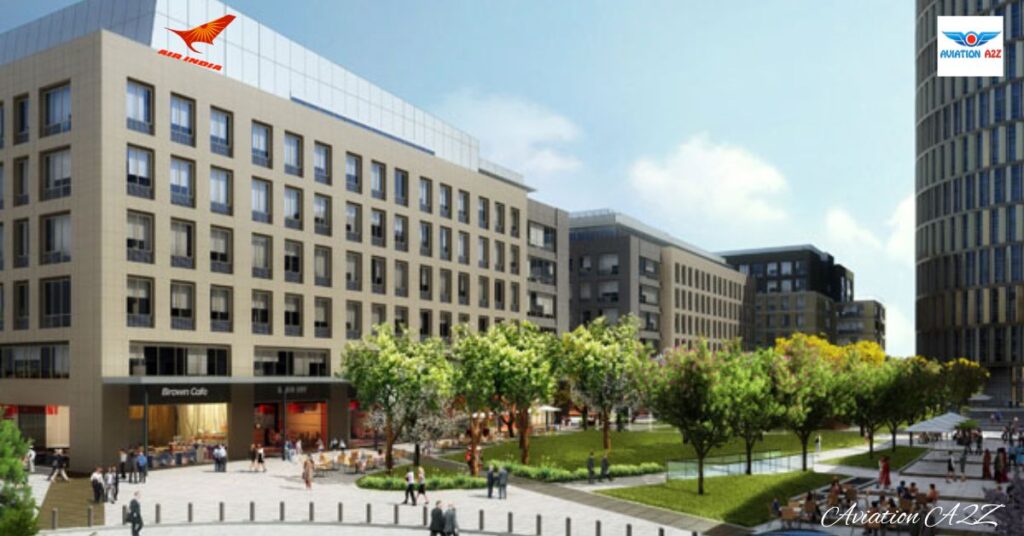CHANDIGARH- Tata-owned Air India (AI) has closed its office in Sector 34, Chandigarh, more than four decades after its establishment in 1980.
Despite the UT administration leasing the building to Air India for a 99-year term, the airline was instructed to return the property following its acquisition by Tata Sons in January 2022.

Air India Closes Its Office
Employees were given the choice to relocate to other offices, but the majority opted for the voluntary retirement scheme (VRS). Sources indicate that the UT Estate Office had requested the return of the building after Air India’s privatization.
The market value of the building is estimated to be around ₹35 crore. The office, built by the airline, consists of six floors, including a basement.
According to a senior Air India officer who chose VRS, the office once had approximately 100 employees, but over the past year, only 20 remained. Most of these employees also opted for VRS, resulting in the closure of the office.
He mentioned that the matter regarding the building’s dispute is primarily between the UT Estate Office and the Civil Aviation Ministry.
The office was well-known for ticket bookings, but now commuters purchase tickets online or visit Air India counters at Shaheed Bhagat Singh International Airport in Chandigarh.
Former cricketers Yuvraj Singh and Ratinder Singh Sodhi, who served as assistant general managers at the office, also chose to take the voluntary retirement scheme (VRS) a few years ago.
Tata Sons assumed control of Air India from the Union government in January 2022, marking the official return of India’s first airline, established in 1932 before being nationalized nearly 70 years ago, which subsequently faced a tumultuous journey that challenged its economic sustainability.

Vatika One Headquarters
Air India (AI) Group recently inaugurated its new headquarters at the Vatika One on One in Gurgaon. The Air India CEO, CCO, and other key executives were present during the inauguration.
According to the source, the Tata Air India group inaugurated the headquarters on a special day. Yes, on July 29, on the birthday of the father of Indian aviation, Mr. Jehangir Ratanji Dadabhoy (J.R.D) Tata, sir.
The decision to centralize workspaces is a crucial aspect of their transformation agenda. Their primary objectives are to enhance collaboration, reinforce the organization’s culture, upgrade employees’ work environment and facilities, and facilitate the seamless adoption of new technology.
According to AI CEO & MD Campbell Wilson, consolidating multiple premises into one and transitioning from a regionalized to a centralized structure marks a significant milestone in Air India’s transformation journey.
This move not only fosters greater collaboration, enhances employees’ work environment, and improves overall efficiency within and across departments but also serves as a powerful catalyst for cultural transformation.
Stay tuned with us. Further, follow us on social media for the latest updates.
Join us on Telegram Group for the Latest Aviation Updates. Subsequently, follow us on Google News.

